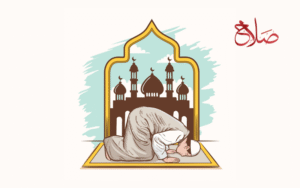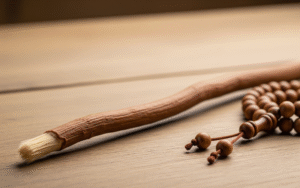Dua After Salah According to Quran and Hadith

Performing dhikr (remembrance of Allah) and making dua after salah (obligatory prayer) is an act highly favored by Allah Ta’ala. Indeed, this is a time when supplications are more likely to be accepted. Therefore, below are some important practices, supported by hadith, to be performed after the five daily prayers, presented in a clear and organized manner.
General Sunnah Practices and Dua After Salah
Seeking Forgiveness and Peace:
To begin, after completing the prayer with the salam, one should first say “Astaghfirullah” (أَسْتَغْفِرُ الله), meaning “I seek forgiveness from Allah,” three times. Following this, recite the following supplication:
اللَّهُمَّ أَنْتَ السَّلاَمُ وَمِنْكَ السَّلاَمُ، تَبَارَكْتَ يَا ذَا الْجَلاَلِ وَالإِكْرَامِ
- Pronunciation: Allahumma Antas-Salamu wa minkas-salam, tabarakta ya Dhal-Jalali wal-Ikram.
- Meaning: “O Allah, You are Peace and from You comes peace. Blessed are You, O Possessor of majesty and honor.” (Sahih Muslim, Hadith: 591)
Reciting Ayat al-Kursi:
Furthermore, it is highly recommended to recite Ayat al-Kursi once after every obligatory prayer.
- Virtue: Regarding its virtue, the Messenger of Allah (ﷺ) said, “Whoever recites Ayat al-Kursi after every obligatory prayer, nothing prevents him from entering Paradise except death.” (Sunan an-Nasa’i, Hadith: 9928)
Reciting the Tasbih of Fatimah:
Another essential practice is to recite the Tasbih of Fatimah:
- 33 times: “Subhanallah” (سبحان الله) – Glory be to Allah
- 33 times: “Alhamdulillah” (الحمد لله) – Praise be to Allah
- 34 times: “Allahu Akbar” (الله أكبر) – Allah is the Greatest
And at the end, recite the following supplication once:
لَا إِلَهَ إِلَّا اللهُ وَحْدَهُ لَا شَرِيكَ لَهُ، لَهُ الْمُلْكُ وَلَهُ الْحَمْدُ وَهُوَ عَلَى كُلِّ شَيْءٍ قَدِيرٌ
Pronunciation: Lā ilāha illallāhu waḥdahu lā sharīka lah, lahu’l-mulku wa lahu’l-ḥamdu wa huwa ʿalā kulli shay’in qadīr.
Meaning: “There is no god but Allah, alone without partner. His is the dominion, and His is the praise, and He has power over all things.”
- Virtue: Through this practice, sins equivalent to the foam of the sea are consequently forgiven. (Sahih Muslim, Hadith: 597)
Reciting Surah Al-Ikhlas, Surah Al-Falaq, and Surah An-Nas:
In addition, one should recite Surah Al-Ikhlas, Surah Al-Falaq, and Surah An-Nas once each after every obligatory prayer. This specific dua after salah is a powerful shield.
Moreover, it is also a Sunnah to recite these three Surahs, blow onto the hands, and then wipe the body. For instance, when the Messenger of Allah (ﷺ) was ill or before sleeping, he would recite these Surahs, blow into the palms of his hands, and then wipe his head, face, and as much of the front of his body as possible.
- Virtue: Consequently, this practice serves as a powerful means of seeking refuge in Allah from the evil of jinn and humans, magic, the evil eye, and all kinds of malevolent things.
Practices for Each of the Five Prayers
1 After Fajr Prayer
(After performing the general practices mentioned above)
- First, it is a Sunnah to recite Surah Al-Ikhlas, Al-Falaq, and An-Nas three times each. (Jami` at-Tirmidhi, Hadith: 2903)
- Dua for protection from Hellfire (recite seven times):
- اللَّهُمَّ أَجِرْنِي مِنَ النَّارِ
- Pronunciation: Allahumma ajirni minan-nar.
- Meaning: “O Allah, protect me from the fire of Hell.”
- Virtue: In fact, the Messenger of Allah (ﷺ) said that if anyone recites this supplication seven times after the Fajr prayer before speaking to anyone, and they die on that day, Allah will consequently decree for them salvation from Hellfire. (Sunan Abi Dawud)
- Dua for protection from harm (recite three times):
- بِسْمِ اللهِ الَّذِي لَا يَضُرُّ مَعَ اسْمِهِ شَيْءٌ فِي الْأَرْضِ وَلَا فِي السَّمَاءِ وَهُوَ السَّمِيعُ الْعَلِيمُ
- Pronunciation: Bismillāhi alladhī lā yaḍurru maʿa ismihi shay’un fī al-arḍi wa lā fī as-samā’i wa huwa as-samīʿu al-ʿalīm.
- Meaning: “In the name of Allah, with whose name nothing on earth or in the heaven can cause harm, and He is the All-Hearing, All-Knowing.”
- Virtue: As a result, whoever recites this supplication three times in the morning, nothing will harm them until the evening. (Tirmidhi)
- Reciting the last three verses of Surah Al-Hashr:
- Virtue: The virtue of this is that if someone recites them in the morning, seventy thousand angels will then pray for them until the evening, and if they die on that day, they will attain the status of a martyr. (Sunan at-Tirmidhi, Hadith: 2922)
- Reciting Surah Yasin:
- Virtue: Surah Yasin is called the heart of the Qur’an. Therefore, reciting it in the morning fulfills the needs of the day and brings peace to the heart.
2 After Dhuhr Prayer
(After performing the general practices)
- Reciting Surah Al-Fath (optional):
- Virtue: This Surah carries the glad tidings of victory. Therefore, by reciting it, Allah Ta’ala keeps the reciter firm on the path of religion and opens the doors of mercy for them.
3 After Asr Prayer
(After performing the general practices)
- Reciting Surah An-Naba (optional):
- Virtue: Its primary virtue is that its recitation awakens thoughts of the Hereafter and, as a result, increases the desire for righteous deeds.
4 After Maghrib Prayer
(After performing the general practices)
- First, it is a Sunnah to recite Surah Al-Ikhlas, Al-Falaq, and An-Nas three times each.
- Dua for protection from Hellfire (recite seven times):
- اللَّهُمَّ أَجِرْنِي مِنَ النَّارِ
- Pronunciation: Allahumma ajirni minan-nar.
- Meaning: “O Allah, protect me from the fire of Hell.”
- Virtue: Specifically, if anyone recites this supplication seven times after the Maghrib prayer before speaking to anyone, and they die that night, Allah will then decree for them salvation from Hellfire. (Sunan Abi Dawud)
- Dua for protection from harm (recite three times):
- بِسْمِ اللهِ الَّذِي لَا يَضُرُّ مَعَ اسْمِهِ شَيْءٌ فِي الْأَرْضِ وَلَا فِي السَّمَاءِ وَهُوَ السَّمِيعُ الْعَلِيمُ
- Pronunciation: Bismillāhi alladhī lā yaḍurru maʿa ismihi shay’un fī al-arḍi wa lā fī as-samā’i wa huwa as-samīʿu al-ʿalīm.
- Meaning: “In the name of Allah, with whose name nothing on earth or in the heaven can cause harm, and He is the All-Hearing, All-Knowing.”
- Virtue: For instance, if someone recites this supplication three times in the evening, Allah will protect them from all kinds of sudden calamities until the morning.
- Reciting the last three verses of Surah Al-Hashr:
- Virtue: Likewise, if someone recites them in the evening, seventy thousand angels will continue to pray for them until the morning, and should they die that night, they will attain the status of a martyr.
- Reciting Surah Al-Waqi’ah:
- Virtue: Finally, reciting Surah Al-Waqi’ah every night provides significant relief from want and poverty. Many consider this an essential dua after salah for sustenance. (Bayhaqi)
5 After Isha Prayer
(After performing the general practices)
- Reciting Surah Al-Mulk:
- Virtue: After Isha, a key practice is reciting Surah Al-Mulk. Indeed, this Surah is a protector from the punishment of the grave. To elaborate, the Messenger of Allah (ﷺ) said, ‘There is a Surah in the Qur’an which contains thirty verses; it will intercede for its reciter until he is forgiven. And that is Surah Mulk.’ Many believers make this recitation a consistent part of their dua after salah routine. (Tirmidhi, Abu Dawud)
In conclusion, may Allah grant us all the ability (tawfiq) to perform these important actions with sincerity. Ameen.









